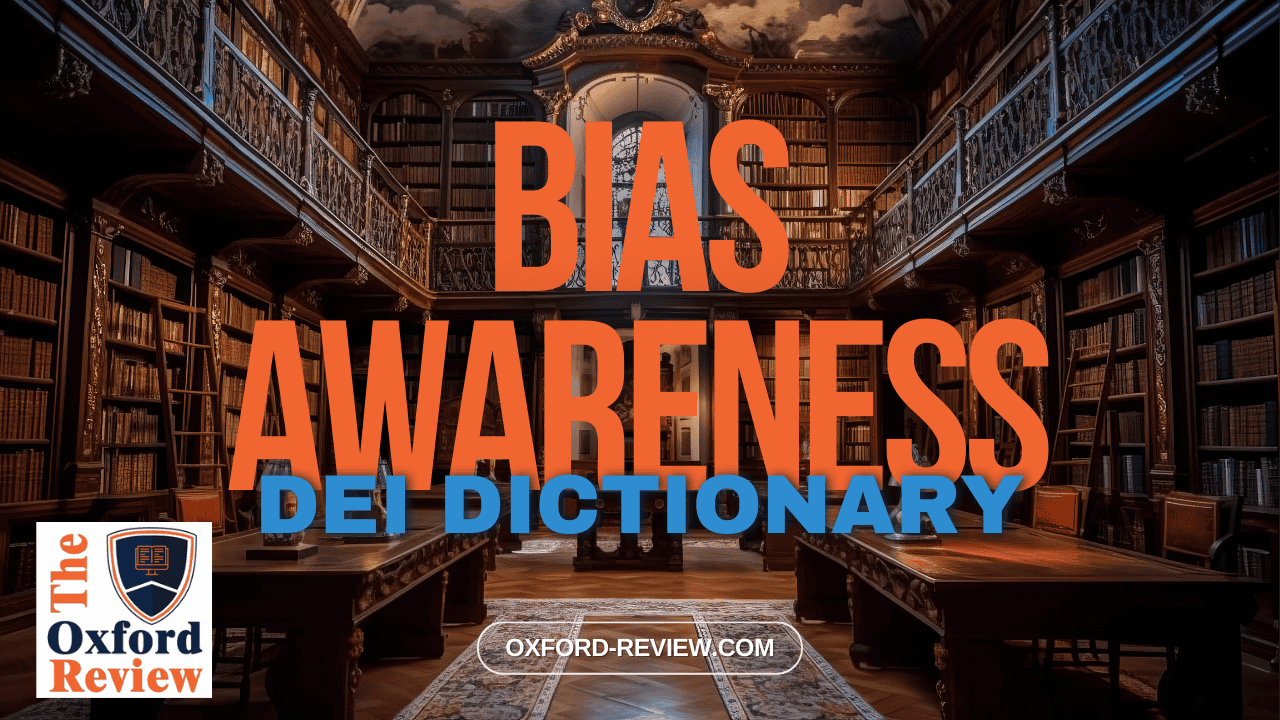Bias Awareness – Definition and Explanation

Definition:
Bias Awareness refers to the conscious recognition and understanding of biases that individuals possess, including implicit biases that may operate on a subconscious level. These biases can be based on various factors such as race, gender, ethnicity, age, socio-economic status, and more. Understanding Bias Awareness involves acknowledging that everyone holds biases, regardless of intentions, and actively working to identify and mitigate them.
Importance:
- Promoting Fairness and Inclusion: Bias Awareness is essential for fostering an environment of fairness and inclusion within organisations. By recognising their biases, individuals can strive to make more equitable decisions and create opportunities for all members of the community.
- Enhancing Decision-Making Processes: Biases can significantly impact decision-making processes, leading to unfair outcomes. Through Bias Awareness training and education, individuals can learn to mitigate biases, leading to more objective and informed decision-making.
- Strengthening Team Dynamics: In diverse teams, biases can hinder collaboration and communication. By cultivating Bias Awareness, team members can develop a deeper understanding and respect for one another’s perspectives, leading to stronger team dynamics and productivity.
Example:
Consider a hiring manager tasked with selecting candidates for a job opening. Despite their best intentions, the manager may have unconscious biases that influence their decision-making process. For instance, they may inadvertently favour candidates who share similar backgrounds or experiences to their own, overlooking equally qualified candidates from different backgrounds.
However, through Bias Awareness training, the hiring manager becomes aware of their biases and learns strategies to mitigate them. They implement blind resume screening techniques, removing identifying information such as names and addresses to focus solely on qualifications and experience. As a result, they make more equitable hiring decisions, leading to a diverse and inclusive workforce.
Conclusion:
This is a crucial component of DEI initiatives, enabling individuals to recognise and address their biases effectively. By promoting fairness, inclusivity, and informed decision-making, Bias Awareness contributes to building more equitable and welcoming environments in both professional and societal contexts. Embracing Bias Awareness empowers individuals and organisations to create positive change and foster a culture of diversity and inclusion.
References:
Perry, S. P., Murphy, M. C., & Dovidio, J. F. (2015). Modern prejudice: Subtle, but unconscious? The role of Bias Awareness in Whites’ perceptions of personal and others’ biases. Journal of Experimental Social Psychology, 61, 64-78. https://www.sciencedirect.com/science/article/abs/pii/S0022103115000773
Zappala, M., Reed, A. L., Beltrani, A., Zapf, P. A., & Otto, R. K. (2018). Anything you can do, I can do better: Bias awareness in forensic evaluators. Journal of Forensic Psychology Research and Practice, 18(1), 45-56. https://www.tandfonline.com/doi/abs/10.1080/24732850.2017.1413532
Be impressively well informed

Get the very latest research intelligence briefings, video research briefings, infographics and more sent direct to you as they are published
Be the most impressively well-informed and up-to-date person around...
